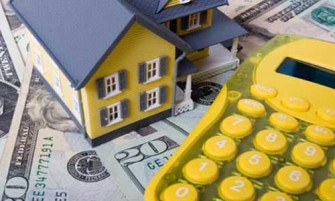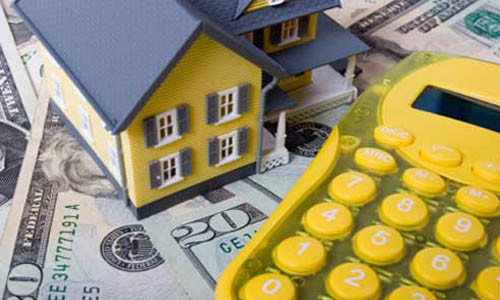Paying Down your Mortgage- When is the Right Time?
 You likely have better things to do with your money than to prepay a low-rate, tax-deductible debt such as a mortgage. Only about half of homeowners receive any tax benefit from their mortgages. Many don’t pay enough interest on their loans to itemize their deductions, either because their mortgages are relatively small or they’re paying mostly principal. If you take the standard deduction, you’re not getting any tax benefit from your mortgage. Even if you itemize, the value of your mortgage deduction may be small if the amount you pay in mortgage interest and property taxes doesn’t greatly exceed the standard deduction. (For 2013 the standard deduction ranges from $6,100 for single taxpayers to $12,200 for married taxpayers filing jointly.) Now that mortgage rates are rising, making refinancing a less attractive option, it might be worth reconsidering how much mortgage debt you want to carry, if any. Even if you feel strongly about the importance of being debt-free, or if you’re convinced you’re OK carrying a mortgage into retirement, you should consider the following facts:
You likely have better things to do with your money than to prepay a low-rate, tax-deductible debt such as a mortgage. Only about half of homeowners receive any tax benefit from their mortgages. Many don’t pay enough interest on their loans to itemize their deductions, either because their mortgages are relatively small or they’re paying mostly principal. If you take the standard deduction, you’re not getting any tax benefit from your mortgage. Even if you itemize, the value of your mortgage deduction may be small if the amount you pay in mortgage interest and property taxes doesn’t greatly exceed the standard deduction. (For 2013 the standard deduction ranges from $6,100 for single taxpayers to $12,200 for married taxpayers filing jointly.) Now that mortgage rates are rising, making refinancing a less attractive option, it might be worth reconsidering how much mortgage debt you want to carry, if any. Even if you feel strongly about the importance of being debt-free, or if you’re convinced you’re OK carrying a mortgage into retirement, you should consider the following facts:
Retirement Comes First
The longer you put off saving for retirement, the harder it is to catch up. Someone who starts at 25 should save 13% of their income to comfortably retire at age 65, according to a T. Rowe Price analysis. If that person waits until age 35, she would have to save 20% of her income. By age 45, said person would have to save 29%. This just reflects the realities of compounding: The sooner you contribute into a retirement account, the longer you have to earn returns. There are other incentives to prioritize retirement savings, including tax breaks and taking advantage of any available company match — an instant return on your money that can be as high as 50%. So make sure you’re on track for retirement before you tackle other goals.
Other Debts take Priority
Student loans, car loans, home equity lines of credit and other debts typically have higher rates that are often variable. That makes them a higher priority to pay off than a low, fixed-rate mortgage, especially with higher interest rates on the horizon.
Keep a Stocked Emergency Fund
If you lose your job or suffer another big financial setback, a hefty savings account can help you pay the bills without going further into debt. A cash stash equal to three months’ expenses is the minimum you should have before starting to pay down your mortgage. Six months or more would be better.
Be Properly Insured
Having a paid-for house won’t be much comfort if you lose it in a lawsuit. Only Florida and Texas offer broad protection for homes against creditors. In other states, your home may be vulnerable. You should have liability protection at least equal to your net worth. That means maxing out the liability coverage on your homeowners and auto policies, and perhaps adding an umbrella policy that would extend those limits to $1 million or more. If you lose your job or suffer another big financial setback, a hefty savings account can help you pay the bills without going further into debt. A cash stash equal to three months’ expenses is the minimum you should have before starting to pay down your mortgage. Six months or more would be better.
When you’re ready to start paying down your mortgage, there are several ways to go about it:
- Pay extra every month. Just make sure the additional money is applied to your principal, not just set aside to make the next month’s payment.
- Make biweekly payments. Paying half your monthly mortgage payment every two weeks essentially means making one extra mortgage payment a year. Don’t pay a service to set this up; that’s unnecessary. Ask if your mortgage servicer offers this option for free or at low cost.
- Refinance to a shorter loan. This locks you into a higher payment, so it may not be a good option if your income is variable or your job is threatened. If you can swing the higher payments, though, you can match the loan term to when you want to retire: a 15-year loan if you’re 50 and plan to retire at 65, or a 20-year loan if you’re 42 and want out by age 62.
The math starts to change in retirement. Most people drop into a lower tax bracket when they stop working, which reduces the value of any deductions. More importantly, the money you need to live on stops coming from a paycheck and starts coming from your savings. Money that you pull out of savings in retirement to pay your bills is generally taxable. While the details vary by individual situations, in general it makes sense to delay or minimize withdrawals from tax-deferred accounts as long as you possibly can. Not having a mortgage is one way to do that. Also, the higher your monthly expenses, the more savings you need to support your lifestyle. You can figure that every $1,000 in monthly mortgage payments requires $300,000 in savings, assuming you’re tapping your savings at a 4% annual rate, which is generally considered a “sustainable” withdrawal rate. With no mortgage, you can comfortably retire either with less savings or with more disposable income to spend. Yet, while acknowledging the math, which favors carrying a mortgage while you’re working and being debt-free when you’re not, is a pretty heavy enticement to pay your mortgage down.

